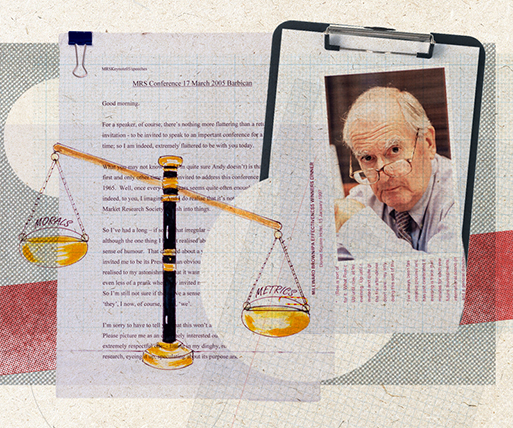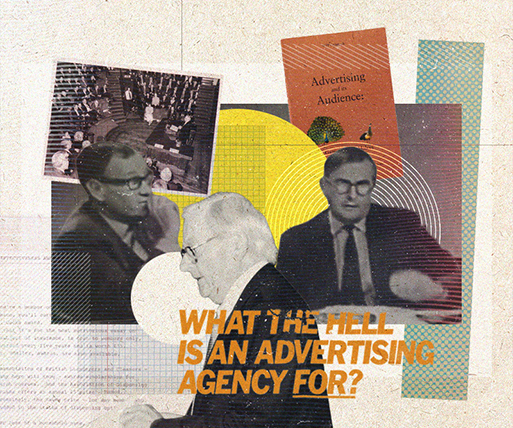A Mickey Mouse solution to the problem of internet stocks
- Date: 1999
- Publisher: Market Leader
- COMMUNICATIONS
In this article, written during the dot-com bubble, Jeremy observed that many companies are tempted to think that if they have a superior, differentiated product they don't need marketing. Marketing case histories often compound this error by apparently linking marketing success with indifferent products. Successful companies (in the overcrowded internet market, for instance) are likely to be those which, as well as having a superior product, realise from the outset that they must build the brand, with differentiation and celebrity. Disney is the ultimate example of this.
A Mickey Mouse Solution to the Problem of Internet Stocks
This column will be devoted to giving unsolicited and seriously flawed advice to venture capitalists. In the process, however, it's possible that some interesting reflections about marketing may surface.
First, some well-rehearsed facts about Internet companies.
The price of Net-related stocks continues to defy traditional analysis. It's said that the average length of time that such stock is held can be measured not in months or in days but in hours. Within 24 hours of one company coming to market, each of its shares had been traded five times. Companies that have never earned a cent in profit are worth billions of dollars. The Net is the fastest-growing medium in the history of media. There are hundreds of start-up (and upstart) companies seeking to provide faster, cheaper, easier, more interactive access to better-organised information and entertainment.
Investors and commentators agree: some of these companies will survive and prosper; most will not. What's harder to agree on, however, is which will do which. That is what perplexes the venture capitalists; and that is what, with becoming diffidence, I just may have the beginnings of an answer to.
Let me start with the man from whom I once, at the request of the WPP switchboard, took an unscheduled phone call.
The caller explained that he was a member of a family firm based near Reading and that for years business had been excellent. Recently, however, the pound had turned against them, a competitor had come out with a parity product at a bare-bone price and the workforce was demanding a pay rise. His father, he told me, had instructed him to ring a few numbers because he was beginning to believe that they might, after all, need some marketing. He wondered if we were in a position to provide them with some?
We made an arrangement to meet, but before we could do so I read in the Financial Times that his company had gone into liquidation.
Marketing people spend much of their time wondering wistfully why marketing never seems to attract quite the respect and affection they believe it deserves. This is partly because most trades tend to wonder wistfully why they're not more rapturously appreciated by their fellow citizens and partly because there's something in it.
The more successful the company, the more tempting it is for them to believe that they don't need marketing; to believe that marketing is a deeply dodgy modern substitute for manly, competitive performance. When de-coded, the proud boast 'We don't need marketing' means 'The success that we enjoy owes everything to the unrivalled excellence of our product offering and nothing whatever to spin and schmooze.' The 'good wine needs no bush' school of business is seldom articulated publicly these days, but I have little doubt that it sits complacently in many a corporate subconsciousness. An expert was once defined as a person brought in at the last minute to take the blame. Marketing often occupies the same role.
You might think that marketing case histories might help but in fact they compound the problem. For obvious reasons, marketing case histories are seldom about superior products: it would be a foolish person, for example, who tried to ascribe the success of Viagra to its imaginative marketing programme. Marketing case histories tend to favour stories in which skilful marketing triumphantly overcomes product parity or worse. And so, through association, good marketing becomes indissolubly linked with undistinguished product. This is clearly what they think at Linux.
Linux is an operating system, in direct competition with Microsoft but with at least one important difference. It's free – you just download it. The Open Source movement was formed to promote the Linux cause and Eric Raymond, one of its leading figures, was recently quoted as saying:
Our development community sees itself as having been persecuted for a long time. We have continually written better software and lost out to idiots with better marketing. It's made us very angry.
The Times, 27.1.99
This might have seemed a compliment but of course it's not. Here's a heroic product that's been crushed by some idiot competitor's marketing. No wonder marketing gets a bad name. Even when it works, it's at the expense of excellence.
Apart from their all being children of the Net, the hectic new companies have one other thing in common: they are all founded on some functional, technological advance. And that is both their strength and their potential downfall.
As with the father of my caller from Reading, there will be many who believe, because they have a functional, demonstrable advantage, and therefore a superior product, that they don't need marketing; or at least, not yet. Those are the companies I would advise my venture capitalists to keep their distance from. And there will be other companies, also with a demonstrable advantage, also a superior product, who will know that their immediate need is to begin to build brand differentiation and brand celebrity. And those are the ones I would timidly suggest that the venture capitalists begin to snuggle up to.
One model is Disney. Back in the beginning, Disney must have known more about animation techniques, and must have posted more animation-related patents, than anyone else in the world. And if that's all he'd done, it would by now be a forgotten company. But Disney invented not only animation techniques but Mickey Mouse and Goofy. From the beginning, he understood his ultimate audience; from the beginning, he built and sustained a brand. For him, marketing was a continuous and continual process that started with invention and never stopped. And it still hasn't.
One new company describes itself as being 'an Electronic Commerce infrastructure and service provider, offering a modular, turnkey solution for outsourced transaction processing and legacy system integration'. If I were a venture capitalist, I would nod sagely on hearing this information – and then question them closely about Goofy. And if they didn't understand, I'd move on.





